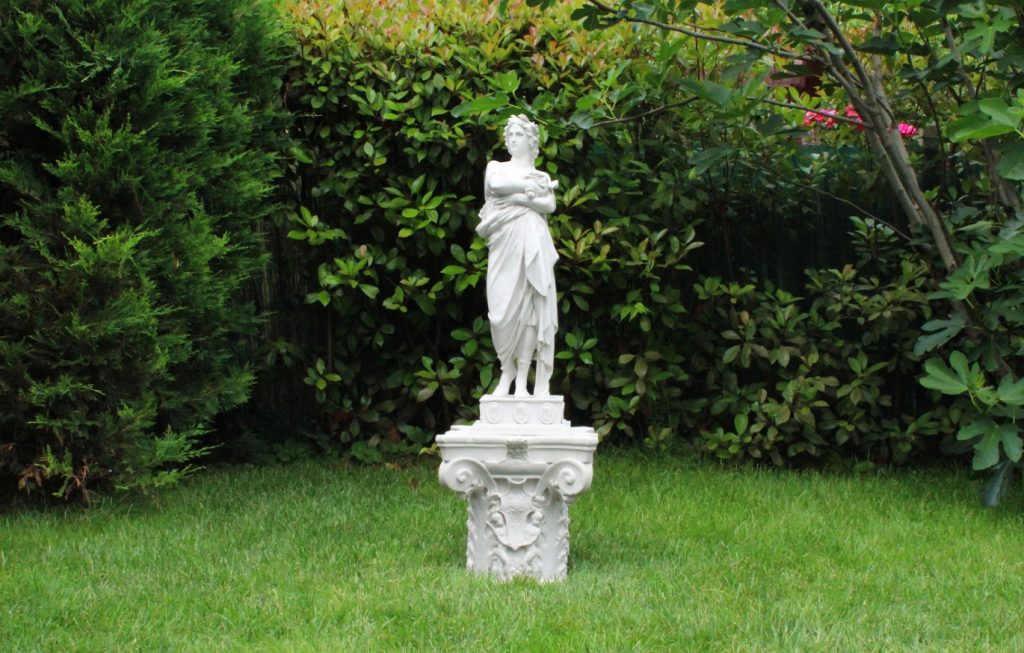In Feng Shui, the layout of space and the placement of objects are important to achieve a balance of airflow and energy flow, and this concept is also applicable to garden decoration. In recent years, many garden designs have begun to incorporate different cultural elements, and the combination of Greek-style garden decoration, especially “Feng Shui Greece”, has become a unique trend.
Statues in Greek culture, especially Greek goddess statues, not only carry ancient mythological stories, but also bring a unique atmosphere to the garden. From the perspective of Feng Shui, Greek goddess garden statues are not only aesthetic embellishments, but also key elements that can adjust the flow of energy. For example, Athena symbolizes wisdom and courage. Placing her statue in the north or west of the garden can help improve personal leadership and decision-making ability. Aphrodite, a symbol of love and beauty, is suitable for placing her statue in the southwest corner of the garden, which helps to enhance interpersonal relationships and emotional harmony.
In addition to the placement of the statue, the choice of material is also particularly important in Feng Shui. Materials such as bronze or marble can inject stable and solid energy into the garden, and these materials are often used in Greek goddess garden statues, adding a sense of sacredness and solemnity.
By combining Feng Shui concepts with Greek garden decorative elements, we can not only create visual beauty, but also enhance the harmony and comfort of the entire outdoor space through the energy balance brought by the sculptures. This unique design approach not only makes the garden a good place to relax the soul, but also brings a more positive impact to daily life.
